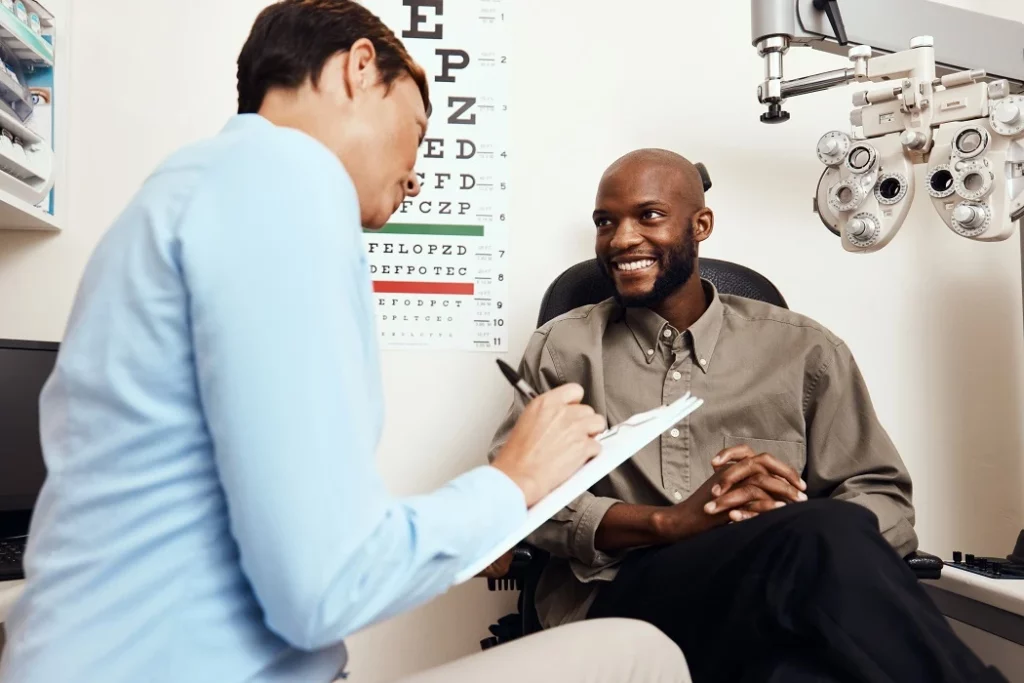Featured
Table of Contents

Routine eye evaluations are important for preserving great vision and spotting prospective eye health issues early. The regularity of these examinations can differ considerably based on an individual's age, way of life, and total health. Comprehending the recommended routine for eye exams can assist guarantee that individuals of any ages obtain suitable treatment and surveillance for their eye wellness.
Infants and Toddlers (0-2 Years)
For kids and infants, eye exams are essential for detecting any prospective vision problems early on. The American Academy of Ophthalmology recommends that a kid's very first eye exam should take place at around six months old. Throughout this first see, the eye care expert will certainly analyze the kid's aesthetic advancement and check for any type of apparent eye problems.Following this initial test, it is recommended that kids have another eye exam at age three. This go to will concentrate on evaluating the youngster's overall aesthetic feature, consisting of eye placement and the capability to track things. If no concerns are discovered, the following examination must be set up before the kid starts school, usually around age five or six.
School-Aged Youngsters (6-18 Years)
Once kids reach school-age child, regular eye tests must be scheduled each to two years. Vision is essential for finding out and advancement, and numerous schools conduct vision testings. These testings do not replace a detailed eye exam by an eye care expert.For children involved in sports or activities needing substantial aesthetic focus, yearly eye tests might be suggested. In addition, if a kid exhibits indicators of vision issues-- such as difficulty reviewing, scrunching up your eyes, or constant frustrations-- a check out to the eye medical professional ought to be set up immediately.
Youthful Grownups (19-39 Years)
Youthful grownups commonly have fewer vision changes than older age teams, but routine eye tests remain important. The basic suggestion is to set up an eye exam every 2 years during this duration. However, people with details threat variables-- such as a household background of eye condition, diabetic issues, or those who wear get in touch with lenses-- need to take into consideration yearly eye exams.In addition, those that invest significant time on electronic devices might experience digital eye pressure. If symptoms such as dry skin, exhaustion, or obscured vision happen, it may be a good idea to see an eye treatment specialist quicker.
Adults (40-64 Years)
As individuals get in midlife, the possibility of establishing vision issues rises. Grownups aged 40 to 64 should set up eye exams every one to two years. This age group might begin to experience presbyopia, an all-natural age-related problem that makes it testing to concentrate on close items. Eye examinations can likewise assist spot other common age-related problems such as glaucoma, cataracts, and macular deterioration.If individuals in this age have risk elements such as hypertension or diabetic issues, they might require more regular exams to check their eye health carefully.
Elders (65 Years and Older)
For elders, routine eye examinations end up being also a lot more vital. The American Optometric Organization advises that individuals matured 65 and older have an eye examination at the very least as soon as a year.Final thought.
Comprehending the suitable schedule for eye tests based on age is crucial for preserving ideal eye wellness throughout life. From infants to seniors, normal eye evaluations play a critical role in identifying issues early and making certain that vision stays sharp. By adhering to these standards and talking to an eye care professional, people can take proactive actions towards maintaining their vision and overall wellness. Whether it's a kid's very first see or a senior's yearly examination, focusing on eye treatment is a financial investment in lifelong well-being.Table of Contents
Latest Posts
Picking the Right Place: What to Take into consideration for Wedding Celebrations, Seminars, and Occasions
Published en
1 min read
Discover Relaxation at the Claridge Indoor Swimming Pool
Published en
1 min read
Leading Patterns in Custom Furniture Layout for 2025
Published en
0 min read
More
Latest Posts
Picking the Right Place: What to Take into consideration for Wedding Celebrations, Seminars, and Occasions
Published Mar 28, 25
1 min read
Discover Relaxation at the Claridge Indoor Swimming Pool
Published Feb 04, 25
1 min read
Leading Patterns in Custom Furniture Layout for 2025
Published Jan 26, 25
0 min read